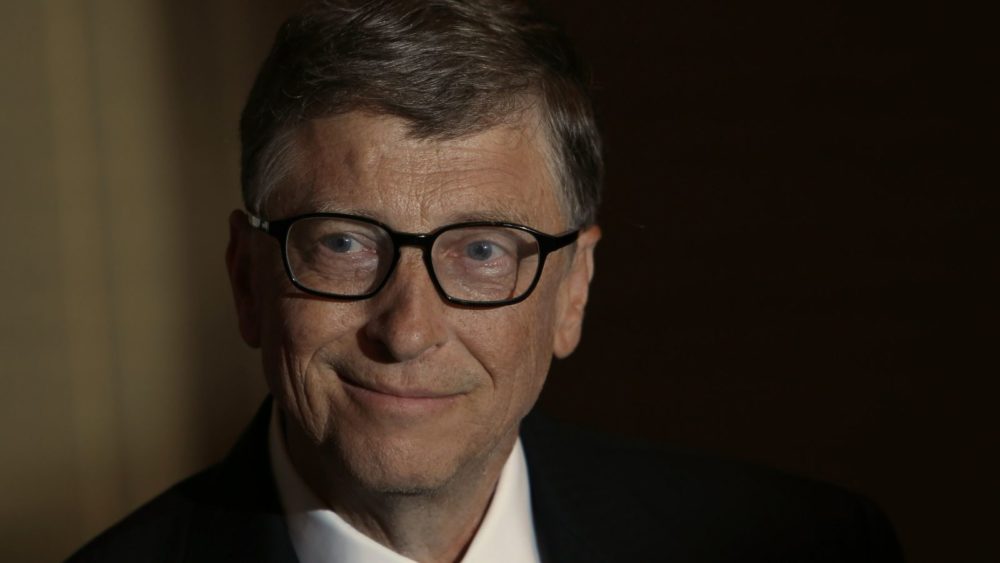
If you could only make one guess as to why Bill Gates has been so successful, what would you say?
Luck?
Acquiring just the right skills at just the right time in technological history?
Brilliant foresight? Uncommon courage? The ability to grasp the finer workings of Silicon Valley?
While these all may have played some role in his astronomical success, the answer is much simpler and it can be seen in his passion for poker during his college days.
Walter Isaacson writes the following about Gates and poker:
He also took up poker with a vengeance. The games would last all night in one of the common rooms of Currier House, which became known as the Poker Room. His game of choice was Seven Card Stud, high low. A thousand dollars or more could be won or lost per night. Gates was better at assessing the cards than in reading the thoughts of his fellow players. “Bill had a monomaniacal quality,” [Andy] Braiterman said. “He would focus on something and really stick with it.” At one point he gave Paul Allen his checkbook to try to stop himself from squandering more money, but he soon demanded it back. “He was getting some costly lessons in bluffing,” said Allen. “He’d win $300 one night and lose $600 the next. As Bill dropped thousands that fall, he kept telling me, ‘I’m getting better.’ ”
Monomaniacal focus. Starting something and then obsessively sticking with it until completion. Refusing to allow himself to be deterred, distracted, or turned aside from his goal.
In other words, Bill Gates had the ability to go much deeper into something than most people. He had a unique ability to set aside distractions and pursue mastery of a particular subject until he either gloriously succeeded or totally failed.
Gates’ poker passion showed that he had one unique ability that would set him apart from everyone else: a passion for deep work.
Deep Work and The Pursuit Of Greatness

Deep work is the ability to set aside all distraction and focus obsessively on a single task. Emails are ignored. Social media is blocked. Text messages go unanswered. The only thing that matters during a period of deep work is the subject at hand.
This type of obsessive focus allows a person to make real, meaningful progress on a particular project. It enables them to do great work that really matters while the rest of the world plays Candy Crush and posts memes on Facebook.
In his book Deep Work, Cal Newport puts it this way:
To learn hard things quickly, you must focus intensely without distraction. To learn, in other words, is an act of deep work. If you’re comfortable going deep, you’ll be comfortable mastering the increasingly complex systems and skills needed to thrive in our economy. If you instead remain one of the many for whom depth is uncomfortable and distraction ubiquitous, you shouldn’t expect these systems and skills to come easily to you.
Almost every great work, whether a book, painting, piece of software, or invention, is the result of deep work. Those who have the ability to shut out the world are able to achieve enormous results, while those who content themselves with shallow work rarely achieve much of note.
Bill Gates dedicated himself to deep work.
When The Poker Games Stopped

During college, Gates and Allen decided to create a platform that would allow hobby programmers to create their own programs on the Altair Intel 8080 processor. This platform would be called BASIC and would require enormous amounts of intense, focused work.
Thankfully, Gates had the stamina for just that.
Again, Walter Isaacson notes:
Gates ignored the exam cramming he was supposed to be doing and even stopped playing poker. For eight weeks, he, Allen, and Davidoff holed up day and night at the Aiken lab making history. Occasionally they would break for dinner at Harvard House of Pizza or at Aku Aku, an ersatz Polynesian restaurant. In the wee hours of the morning, Gates would sometimes fall asleep at the terminal. “He’d be in the middle of a line of code when he’d gradually tilt forward until his nose touched the keyboard,” Allen said. “After dozing an hour or two, he’d open his eyes, squint at the screen, blink twice, and resume precisely where he’d left off — a prodigious feat of concentration.”
His habit was to do 36 hours or more at a stretch, collapse for 10 hours, then go out, get a pizza, and go back at it,” he recalled. “And if that meant he was starting again at 3 in the morning, so be it.”
What’s crucial to note here is that Gates put aside something he loved that was trivial – poker – in order to achieve something great: creating the BASIC platform.
Even though we may never be Bill Gates, this is a crucial success lesson for us.
Every day, we are confronted by a mountain of shallow work. Emails. Status meetings. Slack. Text messages. Facebook updates. Snapchat, Instagram, Twitter, Pinterest, and a thousand other distractions.
If we’re not careful, our productivity can plummet and we can spend entire days being incredibly busy and yet totally unproductive. The allure of shallow work is that we feel productive and yet when we look back at the end of the day we see that we haven’t accomplished anything.
This is why deep work is so essential.
If we want success like Gates, we need to make time to work like Gates. To completely isolate ourselves from distractions and do deep work.
There are some relatively simple ways to do this every day:
- Resolve to eliminate all distractions during your morning ritual. This probably means not turning on your phone until an appointed time.
- Schedule at least one deep work block into your calendar every day.
- Shut down all social media, email, and text messaging for a set period of time while you focus on deep work. If you don’t have the self-control to do this, consider using a distraction blocking software.
- Close your office door during your deep work period. If you don’t have an office door, consider using headphones (if appropriate).
- Use focus music to help drown out distracting background noise during your deep work periods.
You may feel like these methods are extreme, but they’re necessary if you plan on achieving meaningful progress on projects.
The simple reality is that if you don’t make a concerted effort to do deep work, a thousand shallow distractions will crowd into your day, destroying your productivity and crushing you under a buzz of business.
The Annual Think Week

In addition to a gift for maniacal focus, Gates specifically sets aside one week per year as his “Think Week”. During that time he isolates himself in a secluded cottage, disconnects, and spends his time researching, reading, and pondering the future. He’s away from the granular decisions of day to day life and is able to think deeply about what really matters.
It’s the ultimate deep work session.
This practice has been adopted by many other top executives, including SlideShare CEO, Michael Karnjanaprakorn. He describes his practice like this:
Twice a year, I get out of the office, breaking from my normal routine, for much needed “Think Weeks.” By actively disconnecting and looking at everything from 50,000 feet, I am able to effectively reflect, reset, and clearly rethink my goals and aspirations.
If we’re have Gates-like success, we too need to seclude ourselves from time to time to think deeply about what matters.
Even if you can’t set aside a week at an isolated cottage, there are some simple ways you can make deep thinking part of your life.
- Every week, take an hour to review the previous week and make plans for the coming week.
- Every quarter, take 3-4 hours to review the previous months to determine what worked and what didn’t.
- Every 6 months, take 5-6 hours to review the first half of the year and strategize for the coming year.
- Every year, take a full week to review the past year, determine goals for the coming year, and think about the big picture direction of your life.
The ancient dictum says that the unexamined life is not worth living. Perhaps the Gates version of this saying would be that the unexamined life leads to shallow, meaningless work.
You may not be able to develop the kind of focus that will allow you to work for 20 hours at a stretch on a project, but you can slowly begin to implement deep work rituals into your life.
Start with small rituals. Don’t immediately try to isolate yourself for a full 8 hours to work on a project. By simply setting aside an hour or two, you can make a surprising amount of progress on a project that is truly meaningful.
Ultimately it boils down to this: will you let your life and work be driven by the trivial or will you intentionally dive deeply into the meaningful?
Strive for the latter.

Thank you so much for this opportunity. Let Billgates be Billgates since has taught me to manage and value my time in performing my daily routine. Since I have manage my time well all the things am doing are in a proper way to success.Be blessed.
Use many of the apps suggested but not as much as I could due to not remembering keyboard shortcuts, e.g. copy/paste from Launchbar.
But just had an idea that might help. I use 3 screens. Go to sys prefs./Desktop & screensaver. Select folder that you use for screenshots.
Make a screenshot of application shortcut prefs you want to use/remember.
Go back to sys prefs./Desktop & screensaver. Assign screenshot to one of your displays.
Now you get daily reminders until keyboard shortcut in specified app has become muscle memorised.
Just occurred to me so will see how it goes.